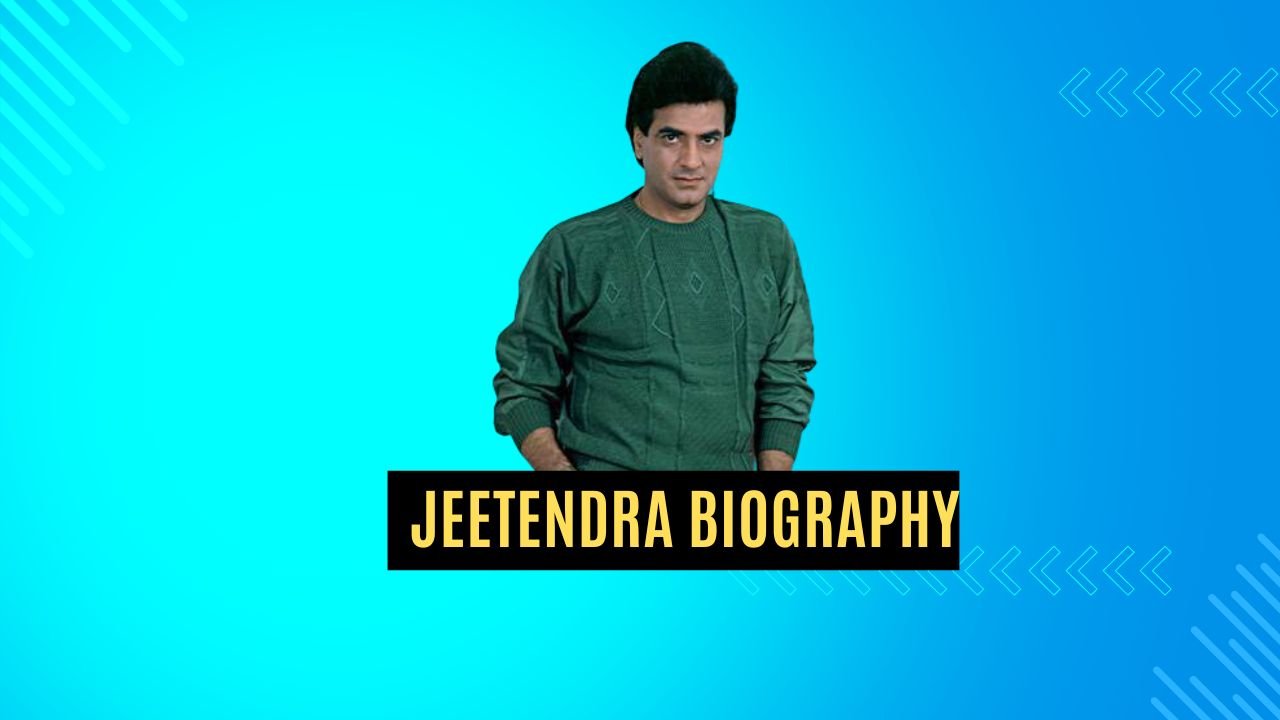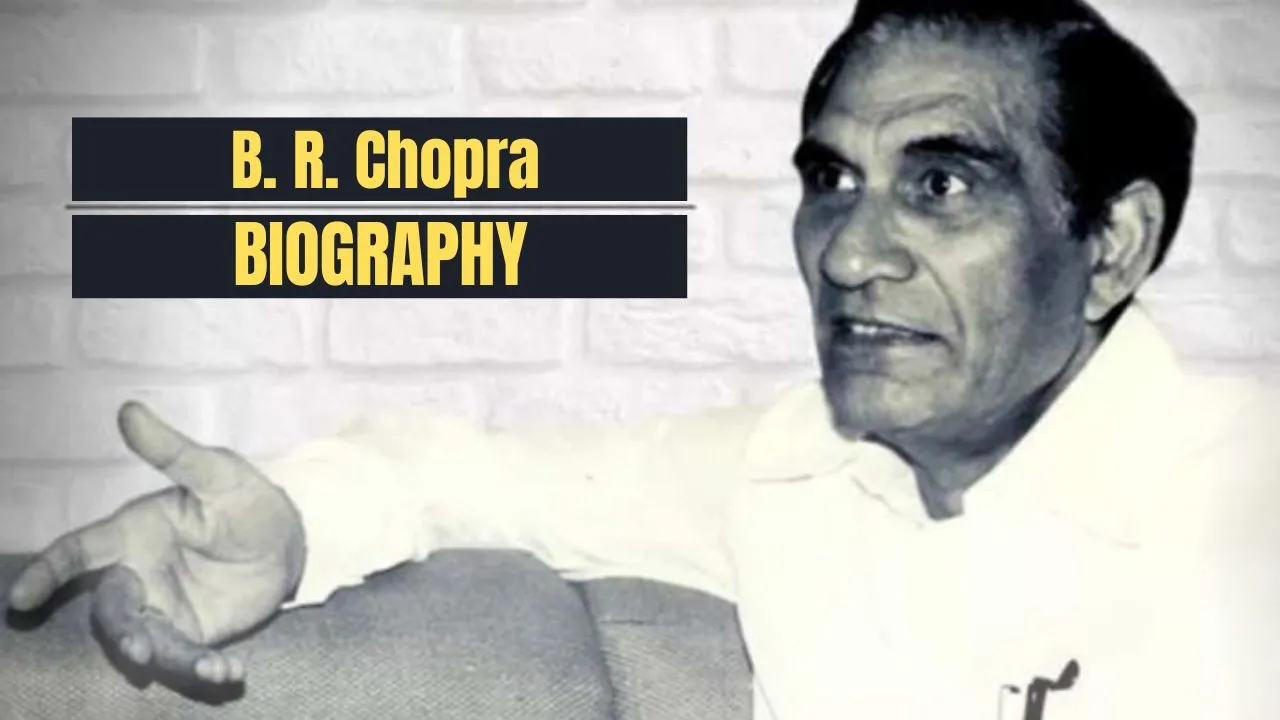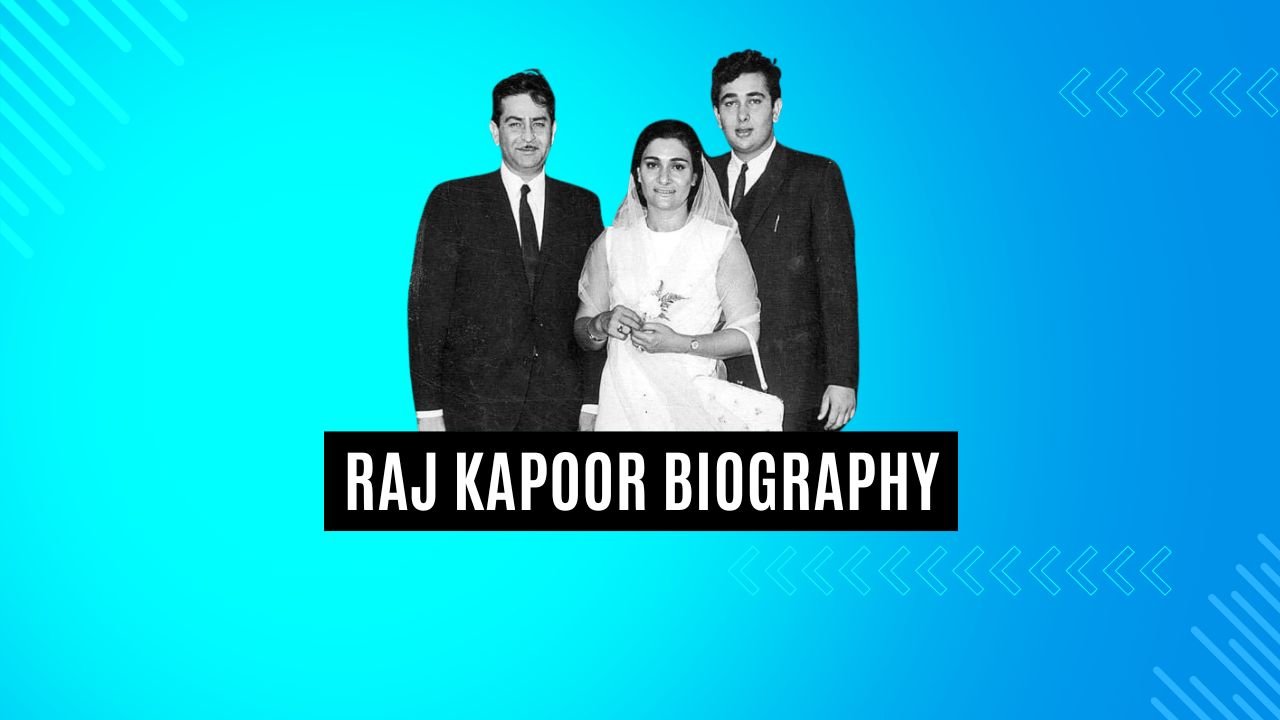Jeetendra Biography: Jeetendra, the quintessential Jumping Jack of Bollywood, is a name that resonates with generations of Indian cinema enthusiasts. Born on April 7, 1942, as Ravi Kapoor, in the bustling city of Amritsar, Punjab, Jeetendra would go on to become one of the most iconic actors in the history of Indian cinema. His journey from a small town to the glitzy world of Bollywood is a testament to hard work, determination, and an undying passion for acting. In this comprehensive biography, we will delve deep into the life and career of Jeetendra, exploring the key milestones, challenges, and the enduring legacy he has left in the world of Hindi cinema.
Jeetendra Biography
Early Life and Family Background
Jeetendra was born into a middle-class Punjabi family. His father, Amarnath Kapoor, was a successful business owner in Amritsar, and his mother, Krishna Kapoor, was a homemaker. Jeetendra, originally named Ravi Kapoor, was the fourth of five siblings. His childhood was marked by simplicity, with an upbringing steeped in traditional values and a strong sense of discipline.
Jeetendra’s early education took place at St. Sebastian’s Goan High School in Girgaum, Mumbai. However, his academic pursuits were overshadowed by his burgeoning interest in the world of entertainment, especially the world of Hindi cinema.
The Entry into Bollywood
Jeetendra’s foray into Bollywood was not an overnight success story. He had to overcome numerous obstacles to establish himself in the fiercely competitive film industry. His first significant break came when he met the legendary actor Sunil Dutt on a flight. Dutt, impressed by Jeetendra’s enthusiasm for acting, advised him to join the film industry.
Jeetendra’s initial days in the film industry were challenging. He struggled to find roles and had to make ends meet by working as an assistant to film directors and even briefly as a stuntman. It was during this period that he adopted the screen name “Jeetendra,” which means “victorious” in Hindi. This name change was symbolic of his determination to succeed in the industry.
The Breakthrough
Jeetendra’s perseverance finally paid off when he was cast in his first leading role in the film “Geet Gaya Pattharon Ne” (1964). Though the film did not set the box office on fire, it marked the beginning of his journey as a leading man in Bollywood. However, his true breakthrough came a few years later with the film “Farz” (1967), directed by Ravikant Nagaich. The film, which featured Jeetendra as a dashing and dynamic police officer, struck a chord with the audience, and Jeetendra’s dance moves in the song “Mast Baharon Ka Main Aashiq” earned him the nickname “Jumping Jack.”
Jeetendra’s signature dancing style, characterized by energetic and acrobatic moves, set him apart from his contemporaries and became his trademark. This unique style endeared him to the masses and played a pivotal role in catapulting him to stardom.
The Rise to Superstardom
The late 1960s and the 1970s were the golden era of Jeetendra’s career. He delivered a string of successful films that established him as a bonafide superstar in the industry. Some of his notable films during this period include “Parivaar” (1967), “Jeene Ki Raah” (1969), “Caravan” (1971), “Bidaai” (1974), and “Dharam Veer” (1977), to name a few.
One of the most iconic partnerships in Bollywood during that era was the Jeetendra-Hema Malini pairing. Their on-screen chemistry was magical, and they appeared together in numerous hit films, including “Dream Girl” (1977), “Kinara” (1977), and “Dillagi” (1978). The success of these films solidified Jeetendra’s position as one of the most sought-after leading actors of his time.
Jeetendra’s Stardom and Awards
Jeetendra’s success was not limited to just his dancing skills. He displayed remarkable versatility as an actor, effortlessly transitioning from intense dramas to light-hearted comedies. His performance in the critically acclaimed film “Khushboo” (1975), directed by Gulzar, showcased his acting prowess and earned him accolades.
During his illustrious career, Jeetendra received several awards and honors for his contributions to Indian cinema. He won the prestigious Filmfare Award for Best Actor for his performance in the film “Khilona” (1971) and received the Filmfare Lifetime Achievement Award in 2003 in recognition of his outstanding contribution to the industry.
Personal Life and Marriage
While Jeetendra was conquering the film industry, he was also building a family. In 1974, he married Shobha Kapoor, the daughter of producer Surinder Kapoor and the sister of well-known actor Anil Kapoor. Shobha Kapoor would go on to become a successful television producer and co-founder of Balaji Telefilms, one of India’s leading production houses.
Jeetendra and Shobha Kapoor’s marriage has been enduring and has produced two children, Ekta Kapoor and Tusshar Kapoor. Ekta Kapoor has followed in her parents’ footsteps and is a prominent television and film producer, while Tusshar Kapoor is an actor in the film industry.
Balaji Telefilms and Television Productions
In the late 1990s, Jeetendra and Shobha Kapoor ventured into television production, co-founding Balaji Telefilms. The production company became a powerhouse in the Indian television industry, producing a plethora of successful serials and shows that revolutionized Indian television. Some of their most popular shows include “Kyunki Saas Bhi Kabhi Bahu Thi,” “Kahaani Ghar Ghar Kii,” and “Kasautii Zindagii Kay.”
Balaji Telefilms’ influence extended beyond television and into the world of cinema, where they produced several successful Bollywood films. The company’s success marked a significant contribution to the Kapoor family’s legacy in the entertainment industry.
The Later Career and Legacy
As the 1980s and 1990s unfolded, Jeetendra’s stardom began to wane, but he continued to act in films and remained a beloved figure in the industry. He experimented with different roles and genres, showcasing his versatility as an actor. Some of his notable films from this period include “Himmatwala” (1983), “Tohfa” (1984), and “Swarg Se Sunder” (1986).
Jeetendra’s contribution to the Indian film industry goes beyond his acting career. He played a crucial role in introducing and promoting several actors and filmmakers who went on to achieve great success. One of the most significant examples is his role in launching the career of the renowned filmmaker Rajkumar Santoshi. Santoshi worked as an assistant director on Jeetendra’s film “Phool Khile Hain Gulshan Gulshan” (1978) before establishing himself as a successful director in the industry.
Retirement and Honors
Jeetendra officially retired from acting in 2003, but his legacy continued to shine brightly. He received numerous awards and honors in recognition of his contributions to Indian cinema, including the Dadasaheb Phalke Academy Award for Lifetime Achievement in 2007.
Jeetendra’s graceful transition from an actor to a respected elder statesman of the film industry showcased his enduring charisma and influence. He continued to be an active presence at industry events and award functions, offering words of wisdom and encouragement to the next generation of actors and filmmakers.
Conclusion
Jeetendra’s journey from a small-town boy to a Bollywood legend is a story of perseverance, talent, and unwavering passion for the world of entertainment. He not only carved a niche for himself with his unique dancing style but also displayed remarkable acting versatility. Jeetendra’s contribution to the Indian film industry extends beyond his successful acting career, as he played a pivotal role in shaping the careers of many actors and filmmakers.
His marriage to Shobha Kapoor and the subsequent founding of Balaji Telefilms added a new chapter to his legacy, as they became pioneers in Indian television production. Even in retirement, Jeetendra continued to be a respected and revered figure in the industry, earning awards and honors for his lifetime achievements.
Jeetendra’s enduring appeal and influence on Indian cinema make him an iconic figure whose contributions will be celebrated for generations to come. His journey serves as an inspiration for aspiring actors, reminding them that with dedication and perseverance, even the most humble beginnings can lead to great success in the world of entertainment.



